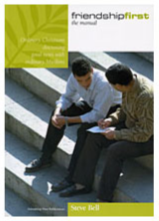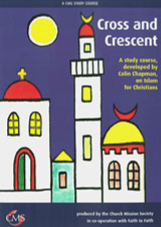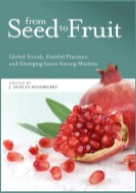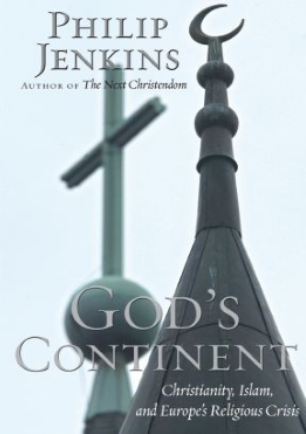Resources for understanding and engaging with Muslims today
It is one thing to read about the issues – quite another to cross the street to build a friendship with our Muslim neighbours.
Sharing your faith
There are many resources available to give Christians a greater understanding of Islam. Three courses aiming to equip us to share their faith with Muslims are Friendship First, the Cross and Crescent coursebook and Sharing Lives.
Friendship First is by Steve Bell, director of Interserve England and Wales and author of Grace for Muslims. The manual is described as a groundbreaking attempt at helping ‘ordinary’ Christians to relate positively to “ordinary” Muslims, and it can be used by individuals or groups. It also links in with the Friendship First seminar series, facilitated by Interserve staff in England and Wales.
Bell, S (2003) Friendship First: The Manual available from www.eden.co.uk
Chapman, C (2003) Cross and Crescent Course available from www.cms-shop.org.uk
Groups could also use a 5 session course developed by Colin Chapman, author of Cross and Crescent, Responding to the Challenges of Islam. It is available from CMS, and according to the website, “hundreds of Christians have attended courses all over the UK and found their faith challenged and their commitment to their Muslim neighbours increased.”
Sharing Lives aims to “help people change their attitude towards Islam and Muslims from one of fear to one of grace and to encourage them to develop meaningful relationships with Muslims in their neighbourhood in order to share their lives and the Gospel of Jesus Christ with them.” The sessions cover issues such as our view of Islam, understanding muslims and building relationships that last. Developed by Operation Mobilsation, the 5 session course is held in venues around Europe – see www.sharinglives.eu for more details.
Planting churches
Woodberry, D (2008) From Seed to Fruit: Global Trends, Fruitful Practices, and Emerging Issues Among Muslims Pasadena: William Carey Library
Readers already involved in cross-cultural outreach to Muslims will be interested in research from USA-based Knowledge Stewardship. Missionaries from 37 nationalities representing over 30 organisations were interviewed about their work. Approximately a third of them had planted a church amongst Muslims, another third had planted multiple churches and a similar number had not planted any.
The resulting book from Seed to Fruit is a comprehensive look at the most ‘fruitful practices’ which ‘promote the emergence, vitality and multiplication of fellowships of Jesus followers in a Muslim context’. The eight categories of practices include how cross-cultural workers relate to society, believers, God, seekers, and leaders; fruitful teams, communication methods and characteristics of fruitful faith communities. For example, a ‘fruitful practice’ in relating to seekers is that they begin to disciple seekers as part of the process of coming to faith, and they also pray for the needs of their friends in their presence. Additional chapters cover issues such as the empowering indigenous leaders, funding and factors affecting the identity Jesus followers choose.
As far as I could see, most of the interviewees came from Western contexts (there is a chapter about partnering with ‘labourers from the global south’) and they were working amongst Muslims in Muslim-majority countries. However as the practices themselves related more to working with individuals or small groups, there is much that could be applied to those working with Muslims in Europe.
Interestingly for me, as someone involved in more “organic” style church planting, many of the fruitful practices described could apply to reaching out to secular Europeans. So, as is stated in the descriptive list, the practices may be more about finding out what “God is currently using to grow his Kingdom” than providing a formula for working among people from a particular religious tradition.
Joanne Appleton
Those who wish to read further on the issues raised by this edition of Vista would do well to start with Phililp Jenkins’ 2007 book God’s Continent. Whilst Jenkins is perhaps overly optimistic with regards to the domesticating effect of European secularism on Islam it does set out the statistics and arguments honestly and recognizes that many of Europe’s migrants are also Christians from the global south with a vibrant Christianity which will change the face of the European church in the years to come. Jim Memory
Jenkins, P (2007) God’s Continent: Christianity, Islam, and Europe’s Religious Crisis Oxford: University Press




